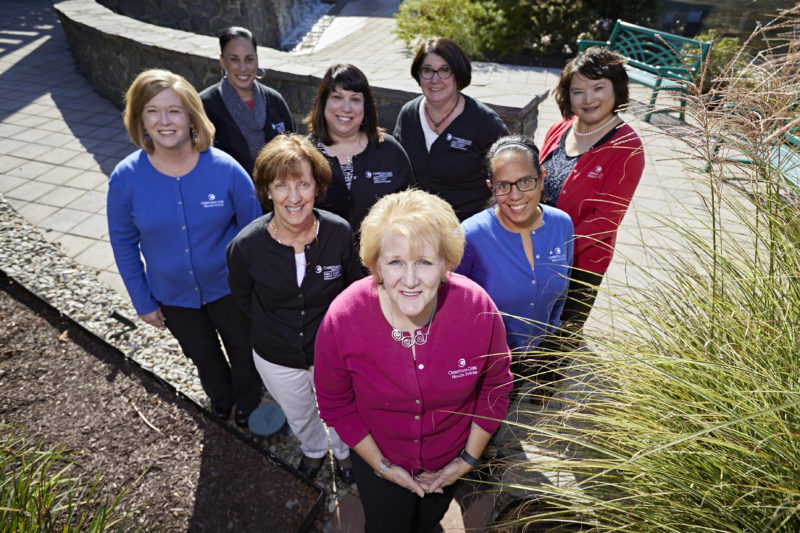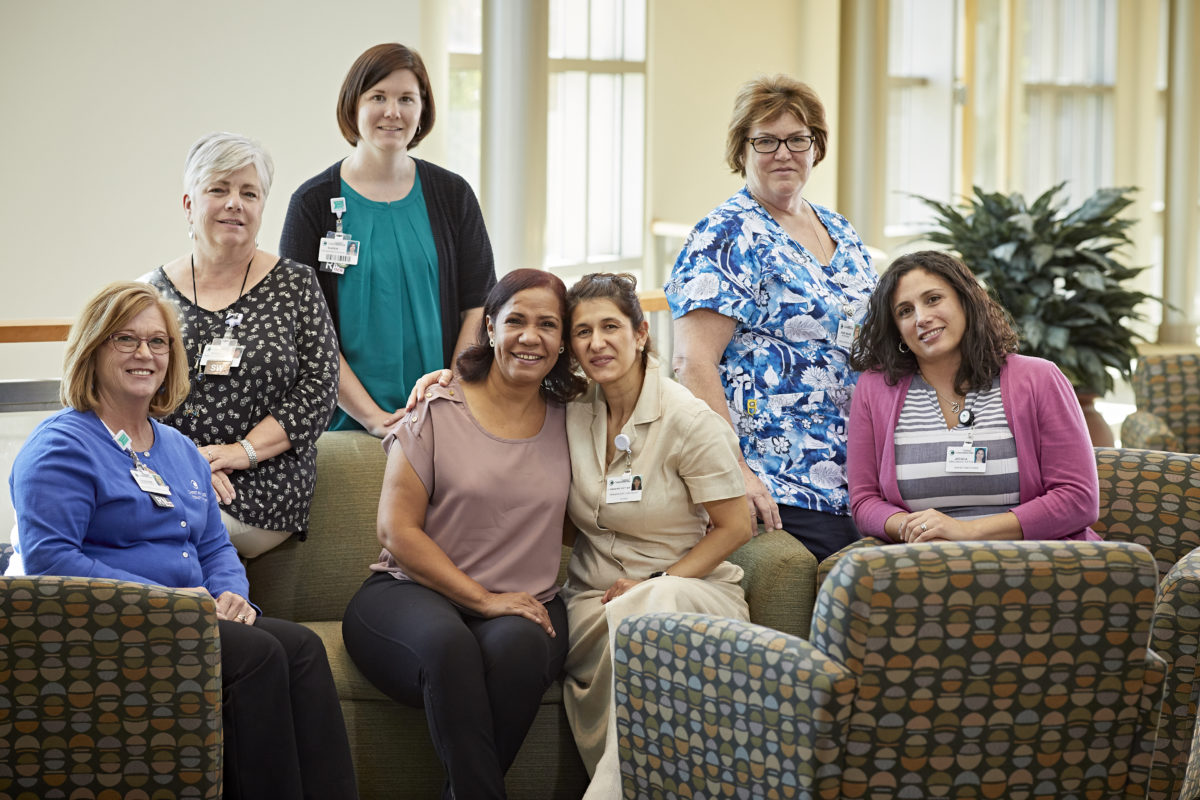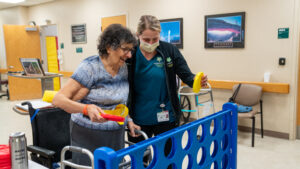When Maria Altagracia Duran-Mejia celebrated her 50th birthday last year, among the many cards of well wishes she received there was one that proved to be a lifesaver. It was a postcard reminder for colon-cancer screening from the governor and Healthy Delaware, a statewide initiative of the Delaware Cancer Consortium and the Screening for Life Program.
The governor’s happy birthday card program encourages individuals to call Christiana Care’s Community Outreach and Education Program at the Helen F. Graham Cancer Center & Research Institute to learn more and for help in scheduling a colon-screening test.
For information about cancer and other health screenings that might help you, contact the Community Outreach and Education Program, 302-623-4661.
Although Duran-Mejia is not a native English speaker, one word on the card stood out — colonoscopy.
“I was having a little pain and bowel discomfort,” she said. “I knew about the test and that I needed help to get one, so I called the number on the card.”
Community Outreach and Education screening nurse navigator Charlene Marinelli, BSN, RN, OCN, answered the call.
“I determined right away that Maria needed language assistance and help to get her screening colonoscopy,” Marinelli said.
She enlisted Healthy Families Program Manager Luisa Ortiz, a bilingual promotora, who assisted with interpreting information. Together, they scheduled testing and subsequent appointments for Duran-Mejia at Wilmington Hospital with a Spanish language interpreter present.
Marinelli was also able to supply a colonoscopy prep kit courtesy of the Special Needs Fund to further remove the barriers to complete her screening.
For Duran-Mejia it was an eye-opener.
“I had cancer and did not know it,” she said. Her colonoscopy and subsequent surgery confirmed stage III colon cancer. “If I had not called that number on the card, I would have died.”
Duran-Mejia recently completed a course of chemotherapy under the care of Jenia Jenab-Wolcott, M.D., a medical oncologist, and her treatment team. with support from nurse navigator Karen Sites, BSN, RN, OCN, at the Graham Cancer Center.
“In addition to providing education about her cancer and next steps for treatment, we were able to work with social worker Ronna Glenn, MSW, to help Maria with some financial and insurance concerns,” Sites said. “She also had the opportunity to meet with a genetic counselor.”
Through the Community Outreach and Education Program, Duran-Mejia got the health care she needed and a lifeline to navigate any future health care needs for herself and her family.
The Community Outreach and Education Program offers screenings for early detection of skin, prostate, breast, cervical and colorectal cancers, as well as combination screening for heart, diabetes and other cancer risks. At the same time, the team provides education about cancer prevention and healthy behaviors.

“We are making broad brush strokes across the community with a variety of bilingual and bicultural programs and events to reach Delawareans where they work, live, worship and connect with each other,” said program manager Nora Katurakes, MSN, RN, OCN. “For many cancers, such as colorectal cancer, early detection improves the chances for a cure. Our goal is to remove any barriers that limit access to tests and medical care that can potentially save lives.”
Programs like Healthy Families, in partnership with the Latin American Community Center, provide an avenue to care for families without insurance in New Castle County who need screenings and preventive care or who suffer from chronic illnesses, including children with asthma.
For nearly a decade, Health Info on the Go has offered free health screenings and information to shoppers at the New Castle Farmer’s Market, where health care marketplace guides also help connect uninsured people with health insurance.
With funding from the Susan G. Komen Philadelphia Pink Ribbon Program, outreach nurse navigators and other health professionals have helped more women access free mammography screenings. They help women get through the maze of decisions about where to go, what tests to get, what forms to fill out, how to get financial support and how to gain access to follow-up services if needed.
In the last 15 years, partnerships like these and with the Delaware Cancer Prevention and Control Program’s Screening for Life have led to more than 48,000 breast cancer screenings, more than 44,000 cervical cancer screenings and more than 49,000 colonoscopies. Delaware is now among the top five states for screening for early detection for breast and colorectal cancer.
These numbers make a difference in terms of early diagnosis and successful treatment outcomes. Delaware’s colorectal screening program, for example, has led to fewer new cancer cases and fewer deaths in our state, while saving millions of dollars annually that would have been spent on costly cancer treatments. The program has also succeeded in eliminating the disparity in these numbers between African-American and Caucasian patients.
“When I received my diagnosis of colon cancer I was crying,” Duran-Mejia recalled. “But the doctors and nurses at the Graham Cancer Center surrounded me with comfort and hope.”
Duran-Mejia is grateful the outreach team worked with her to explain her treatment and address her concerns.
“Because of this relationship,” she said, “I feel better now and have hope for the future that they will work with me to take care of my health care needs.”



